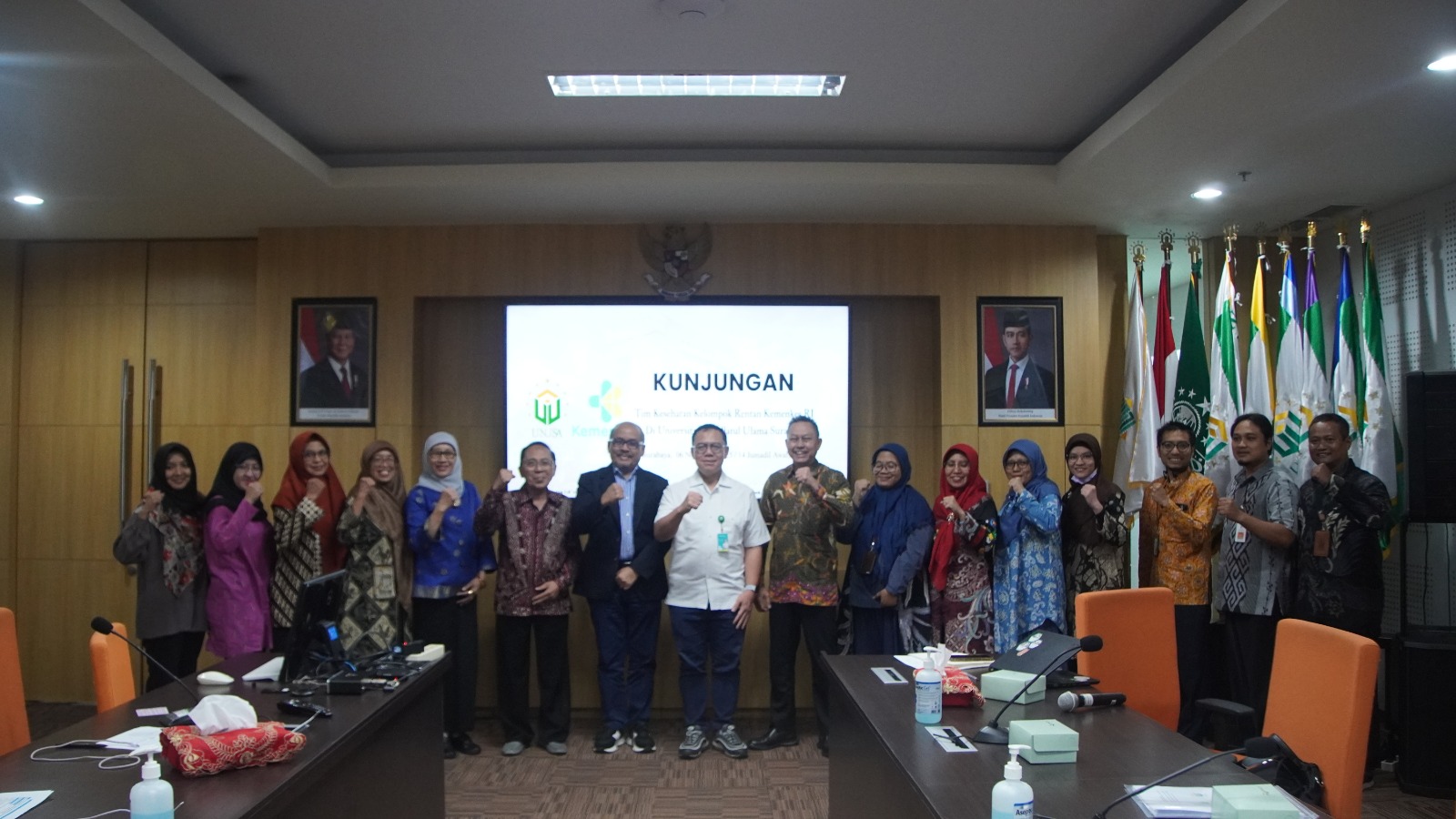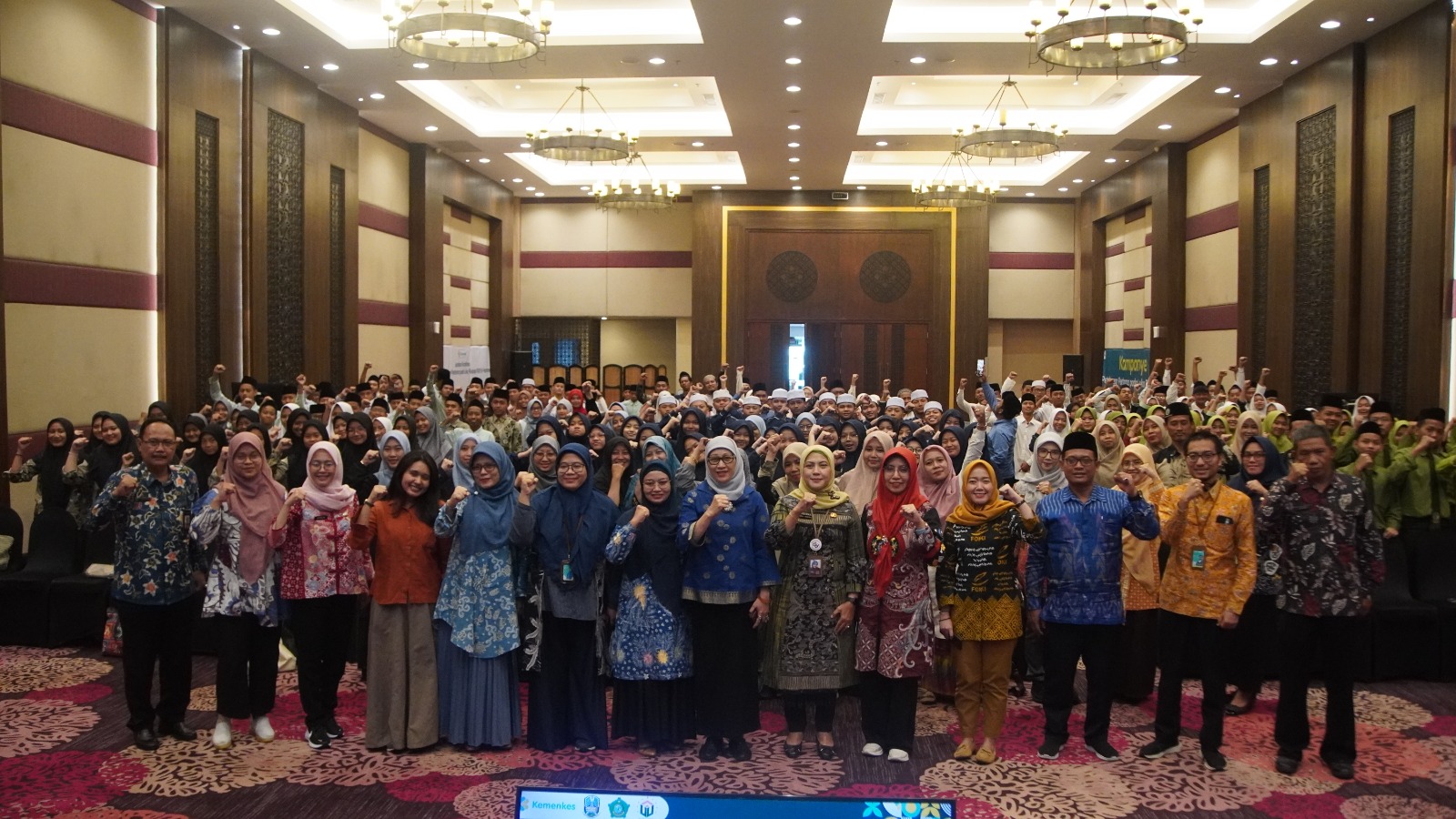SURABAYA— Universitas Nahdlatul Ulama Surabaya (Unusa) continues to show its strong commitment to improving community health, especially among students in Islamic boarding schools (pesantren). Together with the Directorate of Health Services for Vulnerable Groups of the Ministry of Health of the Republic of Indonesia and the Center for Public Mental Health (CPMH), Unusa holds a campaign on First Psychological Aid (P3LP) involving five Islamic boarding schools in Sidoarjo Regency: Pondok Pesantren Al Hidayah, As Syafi’iyah, Jabal Noer, Burhanul Hidayah, and Mambaul Ulum Panjunan.
The campaign aims to increase awareness and skills among santri (students), teachers, and caregivers in recognizing early signs of psychological distress and providing initial psychological support to students experiencing emotional difficulties. The program serves as an initial step toward building mental health-friendly Islamic boarding schools.
One of the speakers, dr. Paramita Sari, M.Sc, a lecturer at the Faculty of Medicine, Unusa, delivers a session on “Mental Health in Adolescents.” She highlights the importance of understanding the psychological dynamics of teenagers who are in the process of finding their identity while also facing academic and social pressures in a boarding school environment.
“Adolescents in pesantren face unique challenges such as adapting to communal life, meeting academic expectations, and limited access to mental health services. Therefore, we need approaches that align with the values of pesantren to help them manage stress and emotions effectively,” says dr. Paramita.
She adds that psychological wounds often remain unseen but can have long-term effects on a person’s behavior, academic performance, and social relationships. With proper training, students and caregivers can offer basic psychological support before issues escalate further. The P3LP program is a collaborative effort that combines academic expertise, community-based approaches, and religious values. Unusa, through its Faculty of Medicine and community service team, designs and implements the training and provides ongoing assistance. Besides seminars and awareness campaigns, the activities include: Simulation of first psychological aid for students and caregivers, Peer counselor (konselor sebaya) training within the pesantren, and the formation of a Pesantren Mental Health Support Network coordinated with local health facilities.
Through this initiative, each pesantren is expected to develop an early detection and referral system for students who need further psychological care.

Dr. Handayani, dr., M.Kes, Dean of the Faculty of Medicine at Unusa, states that this activity represents Unusa’s real contribution to supporting the Sustainable Development Goals (SDGs), especially SDGs 3: Good Health and Well-being.
“Unusa is committed to being a university that not only excels academically but also serves the community. Mental health is an integral part of human well-being, and pesantren are essential communities in building this awareness,” she explains.
She also emphasizes that the P3LP campaign reflects Unusa’s mission as a university that promotes national health, reaching vulnerable groups and community-based areas.
The P3LP campaign across five pesantren in Sidoarjo is expected to become a national model for developing both physically and mentally healthy Islamic boarding schools. The activity not only raises awareness about mental health but also builds the capacity of pesantren to create supportive, inclusive, and peaceful learning environments for students.
Through collaboration between universities, government agencies, and pesantren communities, Unusa believes that this initiatives can strengthen the mental resilience of Indonesia’s young generation and expand health education rooted in Islamic and humanitarian values. (Nrl/Genus)

 Bahasa Indonesia
Bahasa Indonesia

